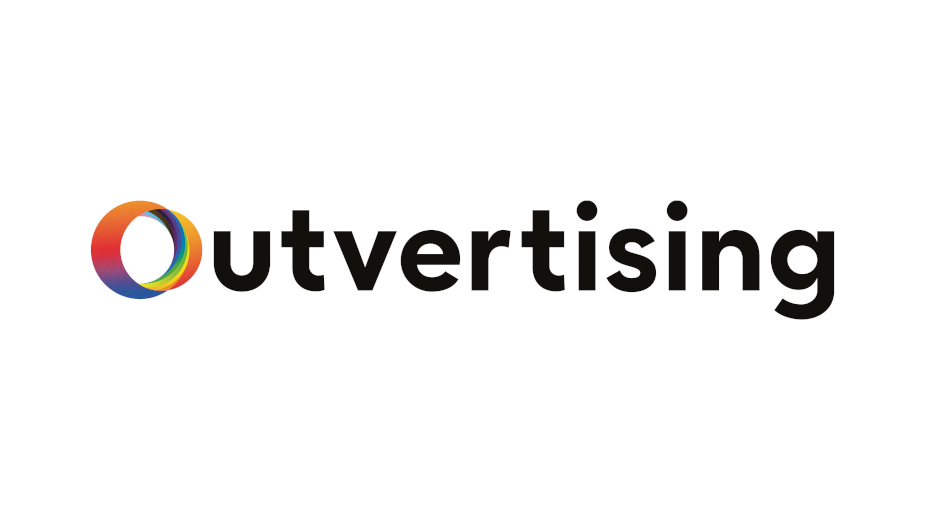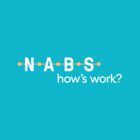
NABS and Outvertising Share Stories and Advice for National Coming Out Day

It’s National Coming Out Day (11th October), celebrating and supporting the LBGTQ+ community in coming out to friends, family and colleagues about their sexuality.
To mark the occasion, NABS, the support organisation for advertising and media, and Outvertising, the not-for-profit LGBTQ+ advertising and marketing advocacy group, have teamed up to share tips for coming out as well as some coming out stories from some of adland’s finest talent.
Paul Wells is director of wellbeing services and culture change at NABS and himself a gay man. Paul says: “Coming out is a very personal journey and one size does not fit all. But the following guidance could really help if you’re wondering how to come out work:
“Do you have any LGBTQ+ role models in your company? If so, reach out to them, ask them on how they came out, there’s strength in numbers.
“Your work relationships will be important, choose your person or people, ask them to be a ally and understand that you may not have all the answers for them. This is especially important if you’re the only LGBTQ+ person in the village!
“Being your authentic self is a right! Your coming out can be as big or as little as needed. What you want to disclose is your journey, your story. When you do come out, consent and trust are crucial for making you feel safe.”
Ant Jackson, senior copywriter, Wunderman Thompson
Because I’ve never had a stereotypical queer ‘look’, many people over the years have made assumptions about my sexuality. As a junior, I’d try to avoid the topic, unless someone asked me directly if I had a boyfriend. Quite often I’d just respond with a “no” because I didn’t want to expose my sexuality to people I didn’t really know, as I didn’t know if they’d treat me differently. But that would leave me in an awkward situation where people would think I was single, even if I had a partner. I’d end up in this trap, where I’d feel like I’d lied to them through omission, which would make me feel less comfortable socialising with them through fear of them finding out. The first time I responded with “no, I have a girlfriend” I was bricking it to be honest, but the person who asked quickly apologised for assuming, and that relieved the pressure. Nowadays I feel much more comfortable answering this question, and I think this is largely down to the support and positivity from my agency and industry groups like Outvertising and WPP Unite.
When I started out as a junior, I didn’t feel able to bring my whole self to work. I was the only female in my creative department, so I didn’t want to feel even more different than I already did. These days, totally. At Wunderman Thompson, we have a great culture that really supports diversity and inclusion. As co-chair of WT’s LGBTQ+ group, our leadership team has shown us a lot of support. We’ve been able to create a place of belonging for LGBTQ+ people and have also worked on a number of initiatives — including language workshops and the implementation of pronouns in employee signatures — making the workplace more inclusive for all.
When you can bring your true self to work, you feel better. You’re able to connect with people in a way that makes you feel truly comfortable, and you’re able to share your own lived experiences with others, which creates better understanding for all. You’re also able to make the work better. Sharing my own insights and perspectives as an LGBTQ+ person has definitely helped us to push the creative work into more interesting and positively representative places.
I have a day job and a gay job! The day job, senior copywriter, involves coming up with creative concepts with my creative partner (shout out to Alice Booth) writing manifestos, scripts, headlines, tag lines, social posts, emails etc. My gay job is co-chair of Wunderman Thompson Unite and WPP Unite Committee member. This entails creating and planning internal initiatives, planning social events and learning events, writing articles, social posts and (yes, more) emails. Through this, we hope to achieve wider awareness and understanding around LGBTQ+ issues and culture, to create a more inclusive industry that can make inclusive and representative work for its audiences.
Anna Brent, executive producer, head of DEI, Across the Pond
Thankfully I have always felt I could be out at work. Historically the reactions have varied between absolute nonchalance (wonderful), to intrigue (always fine), to others feeling embarrassed (awkward) to pretty explicit male titillation (awful).
I do feel I can bring my whole self to work in my current job. I feel my queerness has genuinely only been a positive thing in my agency - it's given me a unique and authentic perspective on what we make and how we make it, and I have always been listened to. Properly listened to. I'd go so far as to say it's offered me opportunities that I may not have had otherwise. I've taken part in really awesome programmes aimed at underrepresented people (as a participant and as a mentor), it's given me a platform to write and publish my perspective, and it was undoubtedly a driver for me to move from production to a global role in the agency looking after our culture and DEI.
I have always felt it necessary to be out at work as I wouldn't be able to be around people all day every day and keep a fundamental part of me hidden. Relationships mean a lot to me at work, and I truly believe we are more successful with a team that is close and open with each other. It is also crucial for me to set a tone for the rest of my colleagues. I would love to have had someone above me on leadership teams who was out and proud as I was starting in the industry and coming through the ranks. I hope if people see me be myself without restrictions it positively influences our inclusive culture. And then beyond just being out, I am proactively working towards supporting positive change in our industry by being part of Outvertising, the Creative Mentor Network and supporting Creative Equals’ anti-racism pledge, amongst many DEI actions internally and beyond.
Chelsea A. Jackson, global racial equity programme manager, WPP
Coming out at work was less 'coming out' than it was continuing my life as I live it outside of work. As I am partnered with a man, I think my bisexual identity is overlooked or looked at with suspicion. Authenticity is key to my personal philosophy to accept myself as I was designed by my creator.
I think it is a daily battle to bring my full self to work, but one I am winning. I'm fortunate to have leaders who are also in the LGTBQ+ community and to work in an environment striving for collaboration. That being said, my weekend passions and interests don't always align with typical coffee conversation. But sharing those things that make me stand out has actually been the fastest route to establishing my own community at work.
My identity is so salient to who I am and the work I do, that being true to myself is the only way I can affect change. I like to think that every opportunity is a chance to translate my uniqueness into a better outcome for others. This is so important because my intersections give me vision in blind spots that perpetuate systemic exclusion. Most importantly biphobia has really helped me to understand internalised oppression and motivated me to constantly look to and shout out Black trans folks running organisations like the Marsha P. Johnson Institute and Black Trans Men Inc
Janette Hall, strategy director turned creative campaigner, Greenpeace UK
I came out at work in 2018 at the summer party of my former agency, aptly named WeAreFearless. The fancy dress theme was ‘come as the thing you’re most scared of’. So I thought to myself, there’s literally nothing scarier than coming out. After confiding in a few trusted colleagues beforehand (after only just coming out to friends and family at that time), I decided to wear a loud and proud rainbow dress as an ice-breaker to tell people my truth.
In over 15 years working in the industry, I’d never met any openly queer female leaders. After coming to terms with who I am a bit later in life than some people, I realised that my position on the leadership team at WeAreFearless meant that I could be the role model to others that I never had. So despite how nerve racking it was, I knew it was the right thing to do.
I feel very fortunate to have worked at inclusive workplaces like Sky, WeAreFearless and now Greenpeace. At Greenpeace, we have a ‘Rainbow’ social group that meets regularly to talk about all things LGBTQ+ and arrange events and initiatives to raise awareness and advocate diversity and inclusion across the organisation.
Being around other LGBTQ+ colleagues makes being out at work seem more normal. Queer colleagues past and present have inspired me to be my true self at work, and now that I’m out, I hope I can help others to feel like they can be themselves too.
Coming out at work isn’t a one-time thing. If you don’t fit the stereotype, people can assume things about your identity and you have to decide moment to moment whether to reveal something so personal to new people in a professional setting. This is especially challenging if you’re still exploring who you are and don’t like to define yourself.
If you’re fortunate enough to work in a safe and inclusive environment, being out can take a huge load off your shoulders. When you can just be you at work, it means you can focus your energy on the job rather than stressing about hiding who you are or your relationship status.
On the flip side, I don’t think anyone should ever feel pressure to come out or disclose anything too personal at work. Ultimately this is about doing whatever makes you most comfortable. LGBTQ+ people have a lot to be proud about, whether they are out or not.
For help with any of the issues raised above, call the NABS Advice Line on 0800 707 6607 or email support@nabs.org.uk











